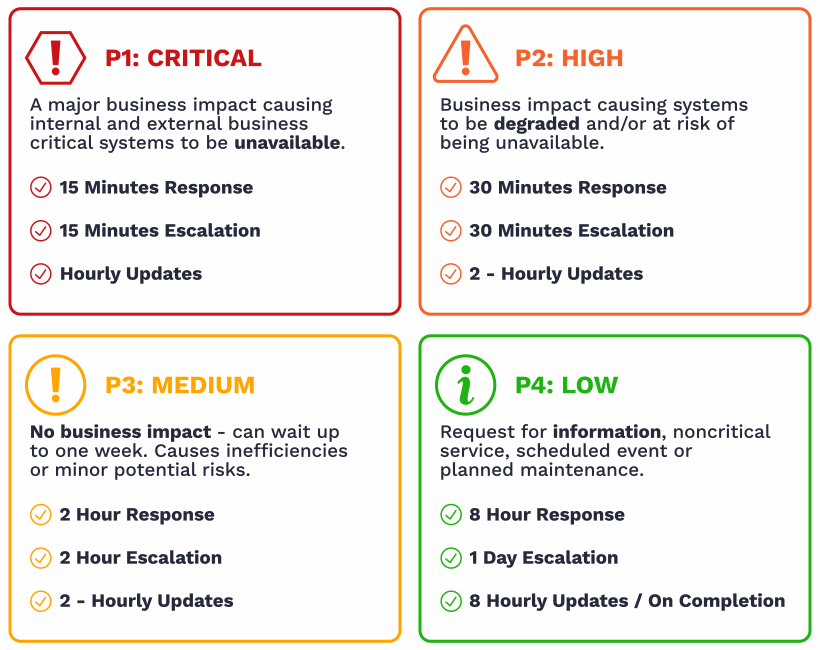The Current State of IT Service Accountability
The reality across our industry reveals a troubling pattern. Many managed service providers offer generalised SLAs with little substance, whilst others operate without formal agreements entirely. Industry standards lack consistency, leaving businesses unable to measure actual service delivery against promised outcomes.
This creates a fundamental problem: IT managers cannot demonstrate value to their boards, and businesses cannot make informed decisions about their technology investments.
The Concierge Service Approach to SLAs
Si Futures has adopted a fundamentally different methodology that treats service level agreements as strategic business tools rather than legal formalities. Our approach recognises that a retail operation’s uptime requirements differ significantly from those of a global corporate with worldwide offices.

Each SLA becomes a personalised framework tailored to specific business realities, operational requirements, and growth objectives. This isn’t about applying generic templates – it’s about understanding how technology availability directly impacts each client’s revenue generation and competitive position.
Immediate Business Impact Through Measurable Delivery
This approach delivers quantifiable benefits that extend far beyond technical performance metrics:
IT managers receive ready-made presentation materials for board meetings, complete with performance data that demonstrates technology investment returns. Monthly transparency reports provide clear expectation-versus-reality documentation, enabling informed strategic planning.
Most significantly, these measurable outcomes provide both pre-purchase justification tools and post-implementation ROI evidence. Business leaders can see exactly how their technology investments translate into operational efficiency and competitive advantage.
From Trust-Based to Evidence-Based Service Delivery
The transformation from “trust us” to “here’s the evidence” represents a strategic shift in how IT services create business value. When prospects enquire about service quality, documented performance data eliminates uncertainty and demonstrates consistent delivery capability.
Corporate governance requirements increasingly demand measurable service delivery accountability. Boards expect quantifiable evidence of technology investment returns, not subjective assessments or vendor promises.
Strategic Implications for SME Growth
For growing businesses, this evidence-based approach provides crucial advantages in strategic planning and resource allocation. Documented service excellence enables confident scaling decisions, whilst performance transparency identifies optimisation opportunities before they impact operations.
The competitive advantage extends beyond immediate service delivery. In industries where reputation travels rapidly, documented excellence provides sustainable differentiation that generic service promises cannot match.
The Future of IT Service Accountability
As businesses become increasingly dependent on technology infrastructure, the demand for measurable service accountability will only intensify. Organisations that can demonstrate consistent delivery through documented evidence will gain significant competitive advantages over those relying on traditional service models.
This shift from promise-based to proof-based service delivery represents the evolution of IT services from cost centres to strategic enablers. When technology solutions are matched to specific business needs through measurable frameworks, service level agreements become instruments of competitive advantage rather than contractual obligations.

